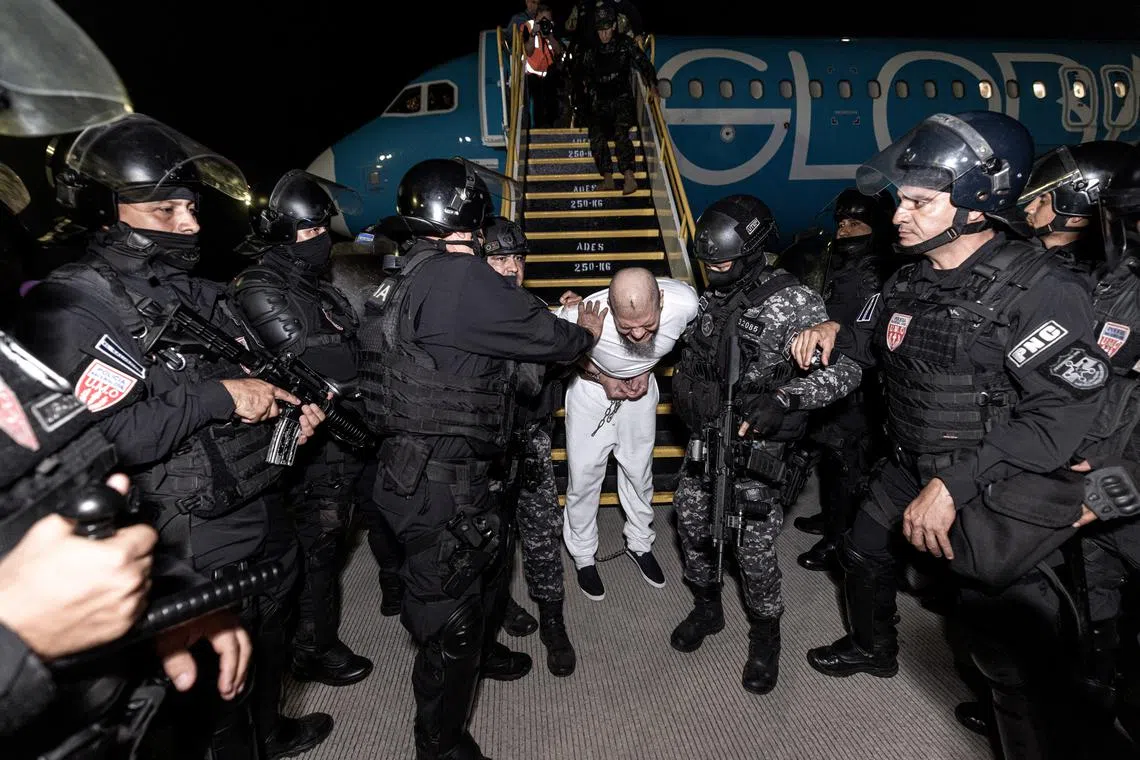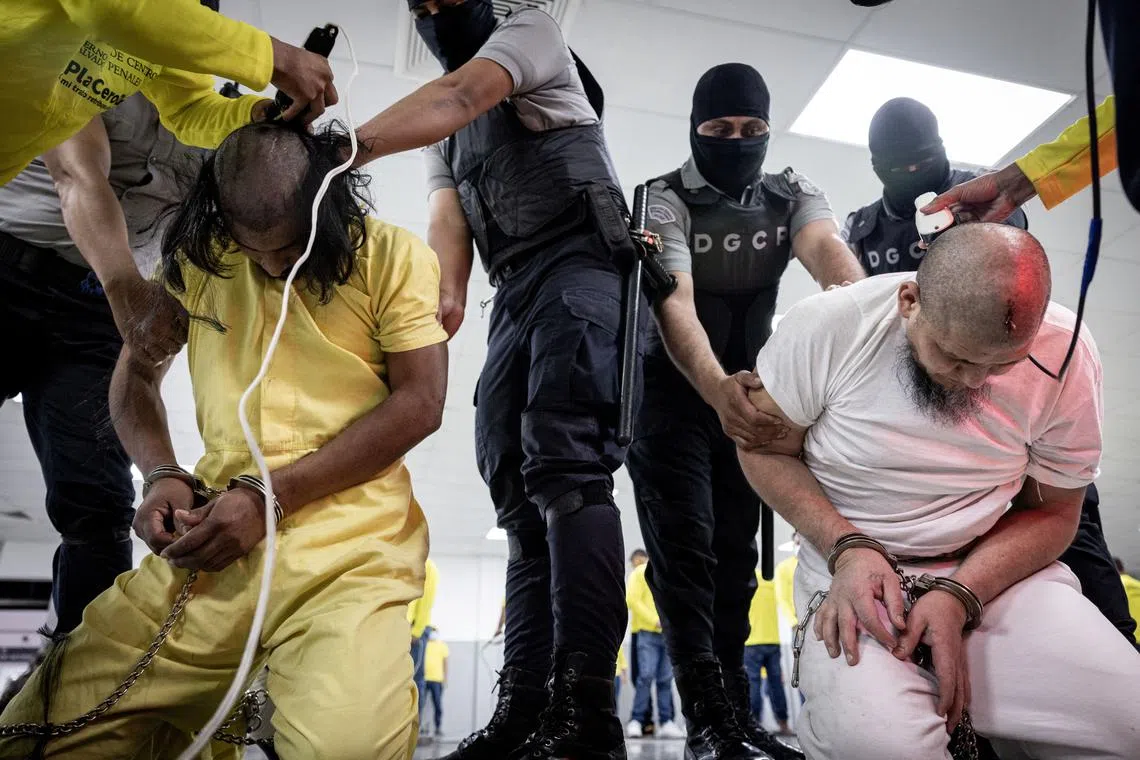Trump deports alleged Venezuelan gang members to El Salvador despite court order
Sign up now: Get ST's newsletters delivered to your inbox

El Salvador police escorting alleged members of the Tren de Aragua gang.
PHOTO: REUTERS
WASHINGTON - The Trump administration said it arrested and expelled hundreds of alleged members of Venezuela’s Tren de Aragua gang to El Salvador for imprisonment, even as a federal judge ordered a halt to some deportations.
“This weekend, at the President’s direction, the Department of Homeland Security successfully arrested nearly 300 Tren de Aragua terrorists, saving countless American lives,” White House press secretary Karoline Leavitt said on March 16 in a statement.
“These heinous monsters were extracted and removed to El Salvador, where they will no longer be able to pose any threat to the American people.”
The US is paying El Salvador to hold the Venezuelans under an agreement that US Secretary of State Marco Rubio brokered with the Central American country’s President Nayib Bukele, who said on social media platform X that 238 members of the gang were transferred to a terrorism confinement centre.
On March 15, Mr Trump moved to accelerate the deportations by invoking seldom-used powers under the Alien Enemies Act of 1798, a statute previously employed to justify the internment of Japanese-Americans during World War II.
The precise timing of the transfers was not immediately clear.
The US also has not publicly detailed how it identified the Venezuelans as members of the Tren de Aragua gang that has been designated a foreign terrorist organisation.
The announcements came as US District Judge James Boasberg barred deportations under Mr Trump’s proclamation for 14 days, allowing time to consider a legal challenge to the move brought by the American Civil Liberties Union and Democracy Forward.
In proceedings on March 15, Mr Boasberg said any flights that carried people deported under Mr Trump’s proclamation would have to be returned midair to the US, according to the Associated Press.
The judge’s written order and the Trump administration’s actions are not in conflict, Ms Leavitt said on the evening of March 16.
The administration did not refuse to comply with a court order, she said, adding: “The order, which had no lawful basis, was issued after terrorist TdA aliens had already been removed from US territory.”
Mr Trump, when asked on March 17 aboard Air Force One if the administration violated Mr Boasberg’s order, responded: “I don’t know. You have to speak with the lawyers.”
Mr Trump told reporters that the deportees are a “bad group of, as I say, hombres”, justifying his decision to invoke a wartime legal provision by saying the migrants “invaded our country” and “in that sense, this is war”.
He rooted his proclamation in assertions that many of the organisation’s members “have unlawfully infiltrated the United States and are conducting irregular warfare and undertaking hostile actions” against the country.
The President’s proclamation states Tren de Aragua is engaging in “mass illegal migration to the United States” in a bid to harm the country’s citizens, undermine public safety, and support efforts by Venezuelan President Nicolas Maduro to destabilise democratic nations.
Mr Trump, in his second term as president, has moved to ramp up deportations of undocumented migrants
As in his first administration, courts across the US have slowed or blocked his ability to fully enact his orders.

El Salvador police officers cutting the hair of alleged members of the Tren de Aragua gang.
PHOTO: REUTERS
Under the Alien Enemies Act, the President can detain and remove non-citizens of hostile nations in wartime, powers which have rarely been tapped in US history.
Opponents argue the authority cannot be used to target members of a criminal enterprise, rather than a country.
The administration asserted in a court filing that some of the deportations happened before the judge’s order.
It added that it will not pursue any more removals under the proclamation unless the court intervenes or removes the restraining order.
Five individuals who were subject to an earlier order blocking their removal are still in the US, the administration said in its filing.
The Venezuelan government posted on Telegram that the US proclamation “infamously and unfairly criminalises” Venezuelan migrants, describing it as recalling “humanity’s most dark moments”. BLOOMBERG


